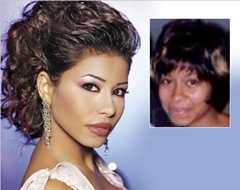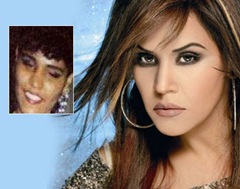
I found an interesting poll at MuslimMatters.org. This poll has been closed but I was struck at the poll result! 33% of the women who wear Islamic attire have never been sexually harassed in the West, while 32% of the votes said they have. Yes, I know… the poll show a strange result if you look at the percentages of other options, but this is a reminder that sexual harassment are plaguing women every single day… no matter where they live. Based on my experience of living and traveling in the West and Muslim world, I have to agree with the result of this poll. I have never been sexually harassed in any non-Muslim-majority countries that I went to. It is in the Muslim-majority country that I often experience such thing. In fact, it’s reported that 90% of Yemeni women said that they had been harassed (80% for Egyptians and 30% for Lebanese). Isn’t it sad?!
Saudi Arabia is a place where I constantly experience sexual harassment. It’s not a safe place for women to go around without men. And it’s NOT always a guarantee that you wouldn’t be harassed when you go with your brother or father. I have been stared from top to bottom, hissed, followed, thrown a business card, touched (thank God “only” my hand, but others may experience worst that me), and I have seen something that I should have not seen. I have also been followed with a car, which was scary! I have heard lots of inappropriate and sexual comments directed at me on the streets and the malls. It doesn’t happen only to me, I assure you. No matter how old you are and no matter how much you cover yourself, women in Saudi Arabia experience harassment almost every single day.
If you think that Mekkah and Madinah are the least place for women to experience sexual harassment, then you are gravely wrong! Inappropriate comments here and there can be heard even when you are in the Holy Mosque! I remember I was constantly stared by this creepy old man for an hour prior to the Eid Prayer at the Haram Mosque in Mekkah. I was very angry but I couldn’t do anything except to ignore him. I did react a couple of times when I was sexually harassed, but I didn’t want to cause disturbance this time at the mosque during one of the holiest months. Normally, women do not react when they experience such thing, allowing men to do it again as they please. BUT I’d suggest to do something about it! Scold him or even threaten him to the religious police!! That would make him dead scared.
Anyway, the experience I wrote above didn’t only happen in Saudi Arabia. Indonesia is no exception, although it’s still “ok” if compared to Saudi Arabia. But still, sexual harassment knows no boundary. Even if it’s in the form of comments like “where are you going, pretty girl?”, it’s still considered a harassment.
I always wonder, why does it happen so frequently in the Muslim world? Is it because we’re too strict? (I’m talking about Saudi Arabia or Iran) Is it because men and women are forced to be segregated all the time? Is it because of the concept of mahram (guardian) that is being abused and misused?
Or are we perhaps too flexible and laid-back? (like in Indonesia or perhaps Malaysia) Men and women are not segregated. They can mingle as freely as they can without worrying about religious authorities. If that’s the case, why does sexual harassment still exist there? I’m not saying that there’s no such thing as sexual harassment in the West, but I never experienced it (hopefully I won’t!). Maybe it’s different if I wore revealing and skimpy clothes and went to the club. Maybe! I don’t know. I never done that hahaha.
One day, a friend of mine asked me via twitter: “as a globetrotter, don’t you think the more liberal the country is, the less sexual harassment they experience? No hidden curiosity”.
That’s a tricky question! While I enjoy my life in the West free from disturbing comments or weird stares, I don’t support liberal views for obvious reasons (e.g. religion). We don’t need a totally free society but we also don’t need a strict one! But how can we be in the middle between the free and strict system? How can we teach the kids in a way that when they grow older, they wouldn’t look at women merely as an “object”? I don’t know the answer to those questions, to be honest.
My friend, who has been to Iran, Jordan, and Syria, also told me that out of all the three countries, she thinks Syria is the best. Iran is too strict, so it’s common for the youth to secretly hold mixed-sex parties with alcohol and drugs. Jordan, on the other hand, is too liberal and the women often complain about sexual harassment over there. Syria, according to her, is actually in the middle between Iran and Jordan. There are no restrictions imposed, nor visual judgment on women who don’t dress modestly. But most women dress and talk decently. Please note that her opinion is based on her observation after traveling to those countries and mingling with the locals (through CouchSurfing! What else, really?!).
She makes me want to go to Syria again!!! I want to go there and meet my uncle and aunt to discuss about this. Hopefully Syria is “recovering” soon from the unrest.
I want to conclude this post with this verse in the Qur’an:
Tell the believing men to lower their gaze (from looking at forbidden things), and protect their private parts (from illegal sexual acts, etc.). That is purer for them. Verily, Allah is All-Aware of what they do.
— The Qur’an (24:30)


